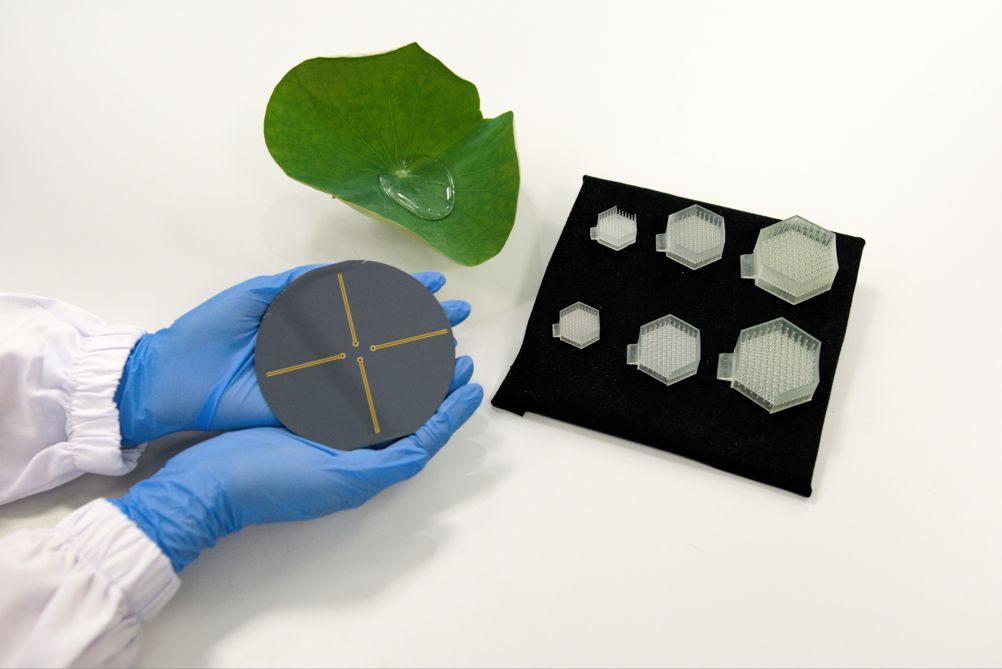Developed by researchers at the National University of Singapore (NUS) the so-called eAir sensor is claimed to overcome many of the challenges associated with existing pressure sensors, which are typically made from stiff inflexible materials and often struggle to deliver consistent readings.
To develop the device, the NUS team drew inspiration from a phenomenon known as the 'lotus leaf effect' - a natural phenomenon whereby water droplets effortlessly roll off the leaf’s surface, made possible by its minuscule, water-repelling structures.
“The sensor, akin to a miniature ‘capacity meter’, can detect minute pressure changes - mirroring the sensitivity of a lotus leaf to the extremely light touch of a water droplet,” explained research leader Assoc Professor Benjamin Tee from the NUS College of Design and Engineering

Employing an innovative ‘air spring’ design, the sensor houses a trapped layer of air, forming an air-liquid interface upon contact with the sensor’s liquid. As external pressure increases, this air layer compresses. A surface treatment results in a frictionless movement of the interface within the sensor, triggering a change in electrical signals that accurately reflects the exerted pressure.
According to the team, the technology could help transform laparoscopic surgical procedures by enabling tactile feedback for surgeons. “Conducting surgeries with graspers presents its unique challenges,” said Prof Tee. “Precise control and accurate perception of the forces applied are critical, but traditional tools can sometimes fall short, making surgeons rely heavily on experience, and even intuition. The introduction of soft and readily integrable eAir sensors, however, could be a game-changer.”
The sensor also holds promise as a less invasive means of monitoring intracranial pressure (ICP), a key health metric for individuals with neurological conditions.
The team’s findings were published in the scientific journal Nature Materials on 17 August 2023.










Guest blog: exploring opportunities for hydrogen combustion engines
"We wouldn't need to pillage the environment for the rare metals for batteries, magnets, or catalisers". Batteries don't use rare...